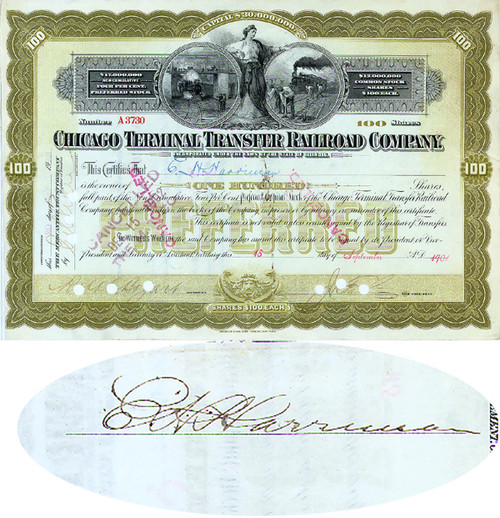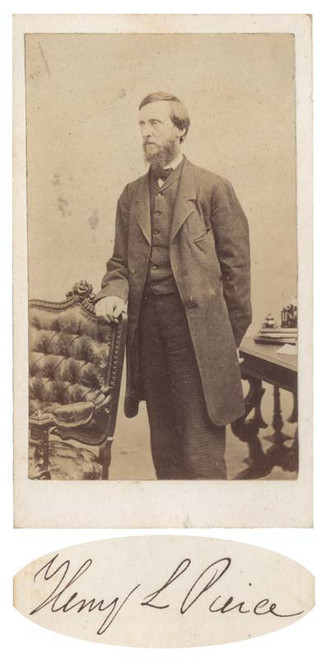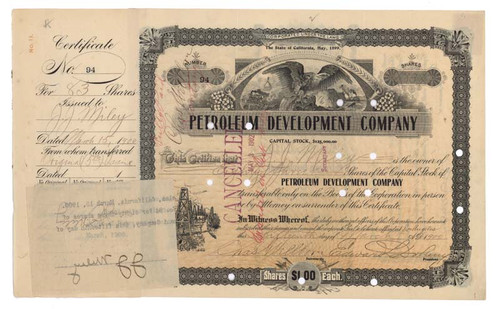Edward L. Doheny (1856-1935) American oil tycoon who served as the basis for Daniel Plainview, the character portrayed by Daniel Day-Lewis in There Will Be Blood. Edward Doheny, the child of Irish Immigrants, first came to Los Angeles at the age of 36 in the hopes of making his fortune. Having previously worked as a gold miner, gunslinger and even a singing waiter, the impecunious Doheny luckily learned that crude oil deposits were present below what is now Douglas MacArthur Park. Together with his former mining partner, Charles Canfield, Doheny purchased a vacant lot at the edge of Los Angeles for four hundred dollars and began digging. Using only picks, shovels and eventually a makeshift drill constructed out of a Eucalyptus tree, the two men finally struck oil in late 1892 at a depth of 460 feet. Expanding the operation throughout California and Mexico in the coming years, Doheny grew to become the richest man in American by 1925, surpassing even J.D. Rockefeller. As is often the case, Dohenys wealth allowed him to extend his influence into the political chambers of the nations capital, most notably as a key figure in the Teapot Dome scandal. In 1922, Doheny and Henry Sinclair secured non-competitive land leases through the efforts of Albert Fall, a longtime friend of Dohenys who was serving in the U.S. Department of the Interior. Though these leases themselves werent illegal, the fact that Fall received over four hundred thousand dollars in gifts from the two oilmen for them was. Soon, The Wall Street Journal broke the news of this arrangement, paving the way for a Senate investigation and trials. During Edward Dohenys trial for bribery, personal tragedy struck the Doheny family when, on February 16, 1929, Ned Doheny and his personal secretary were shot and killed at Neds spectacular Greystone mansion. While the circumstance surrounding this tragic event remains clouded in mystery and intrigue, the loss may have played on the sympathies of the jurors, who only needed and hour to return with a not guilty verdict. Conversely, the other to key figures in the case, Henry Sinclair and Albert Fall, the latter of whom earned the dubious distinction of being the first cabinet member to service a prison sentence, were both convicted. The Petroleum Development Company was the first company to interest the railroads on the Pacific coast in the use of oil as a fuel source for their locomotives. In 1903, the AT & SF purchased the company and its properties.
Edward L. Doheny
MSRP:
Was:
Now:
(Inc. Tax)
MSRP:
Was:
Now:
$400.00
(You save
)
- SKU:
- SB-4506
- UPC:

Add to Cart
The item has been added
Edward H. Harriman
MSRP:
Was:
Now:
(Inc. Tax)
MSRP:
Was:
Now:
$225.00

Add to Cart
The item has been added
A Rare Edward Hutchinson Autograph Document Signed While Serving As Treasurer of Harvard College
MSRP:
Was:
Now:
(Inc. Tax)
MSRP:
Was:
Now:
$2,500.00

Add to Cart
The item has been added
Important Medical Pioneer Edward Augustus Holyoke Receives Payment For Medical Services Rendered
MSRP:
Was:
Now:
(Inc. Tax)
MSRP:
Was:
Now:
$950.00

Add to Cart
The item has been added
Henry L. Pierce
MSRP:
Was:
Now:
(Inc. Tax)
MSRP:
Was:
Now:
$125.00

Add to Cart
The item has been added
Northern Pacific Railroad Stock Issued To And Signed On Verso By Fred L. Ames
MSRP:
Was:
Now:
(Inc. Tax)
MSRP:
Was:
Now:
$95.00
!


